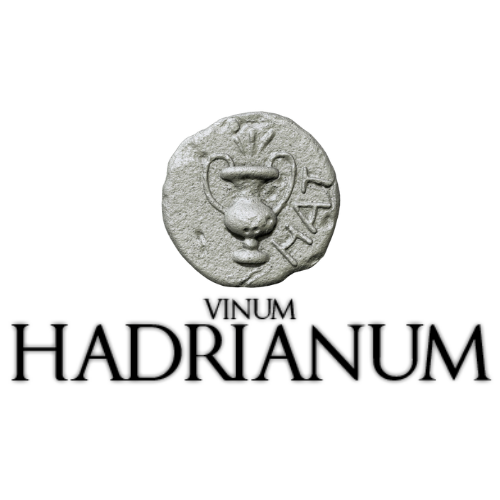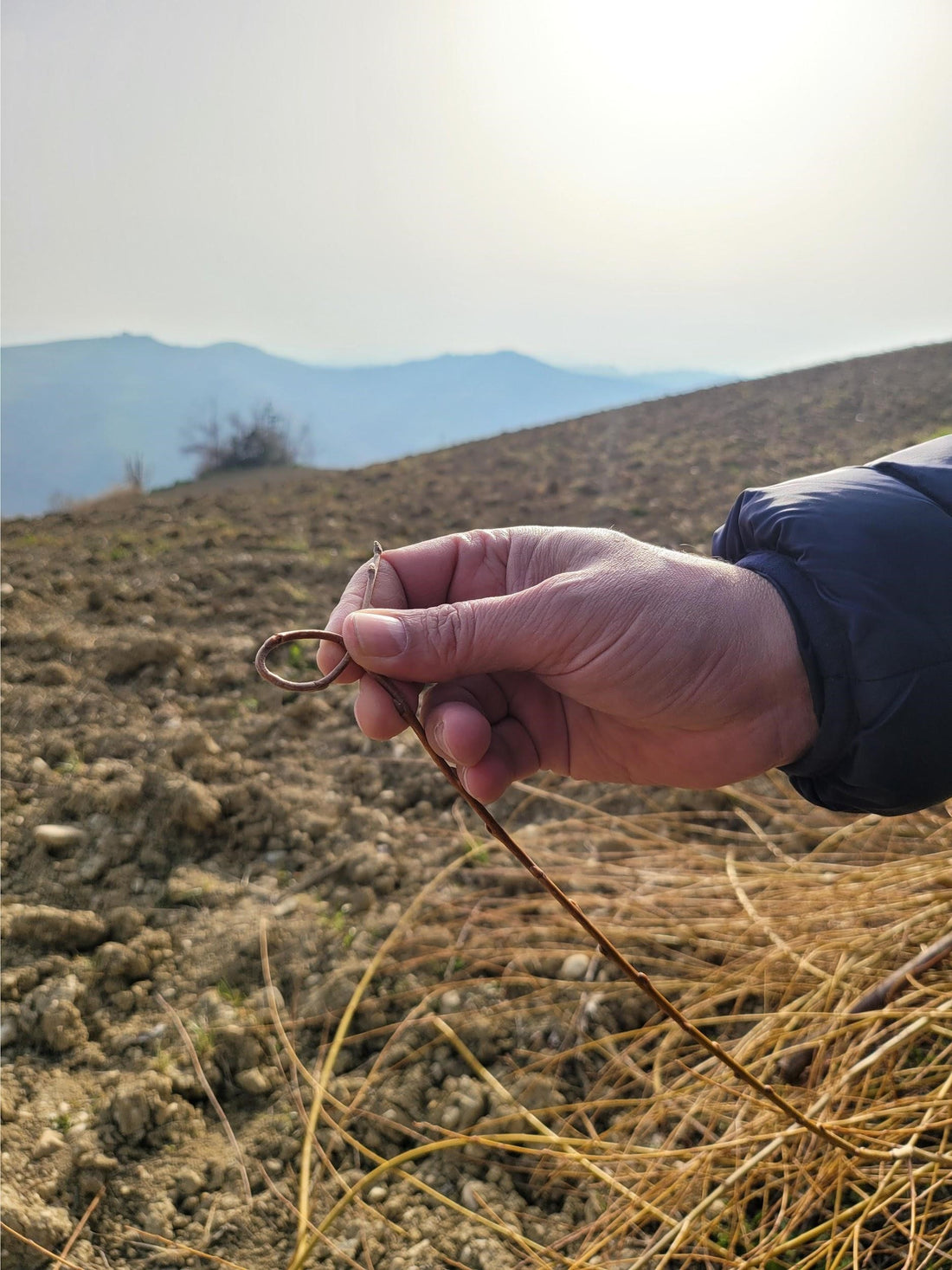We believe in the crucial importance of a green commitment of our company, for this reason we adopt plastic-free systems and environmental sustainability initiatives in the processing of our vineyards.
One of these green initiatives is the tying of our vineyards with white willow branches, a plant that grows naturally on our land and which allows us to avoid the use of plastic bands or other non-biodegradable materials. Among the agricultural traditions, the technique of tying vine plants with the willow -so much used in previous decades in viticulture- has been “almost” lost. All the ties (and much more) were obtained from an extraordinary tree, the willow. This tree had enormous importance in the peasant economy. In the past, the different species of willows were widely used for the extreme flexibility of their branches and also because there were very few alternatives and our ancestors had the necessary time to devote to the entire operation, which provides that gnarled and fast hands, with superb skill, fix all the plants with absolutely natural ties, obtained from the willow plant, also known as wicker. In our territory, the most common species of willow is the white willow (Salix alba), which was also widely used for its antipyretic properties.
The recovery of this ancient tradition allows us to avoid the use of plastic and other non-biodegradable material in our vineyards, for a more sustainable and greener approach, as well as giving them a more natural appearance and a timeless charm.
The passion for our territory and its natural products cannot be exempt from a commitment to environmental sustainability and Vinum Hadrianum wants to do its part, for a green and healthy future for all.

